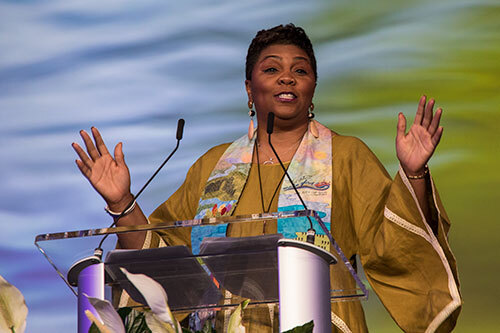A St. Louis Circuit Judge is set to decide whether a lawsuit filed by 13 clergy from six faith traditions who oppose the state’s abortion ban will proceed.
Judge Jason Sengheiser heard arguments on June 13 from counsel representing various religious leaders that the ban infringes upon the separation of church and state.
But supporters of the prohibition accuse the religious leaders of stepping out of line.
“They're not faith leaders,” said Byron Keelin, president of The Freedom Principle MO, a Missourians-first 501(c)3. “They're political leaders wearing the cloak of religious cloth.”
Under House Bill (HB)126, which became Missouri state law last year, violating the ban can lead to felony charges that are punishable by up to 15 years in prison. Providers of abortion are also subject to losing their medical licenses.
“The one area you thought you could count on as far as adhering to pro-life religious values of strong families, of protecting children and adhering to God's principles have been corrupted by faith leaders promoting abortion,” Keelin said about the lawsuit.
Plaintiffs include United Church of Christ Rev. Traci Blackmon, Eliot Unitarian Chapel and First Unitarian Church minister Krista Taves, Shaare Emeth Rabbi Andrea Goldstein, Central Reform Congregation Rabbi Susan Talve, and Congregation Kol Ami Rabbi Doug Alpert.
“In the United Church of Christ, we believe that God intended people to have autonomy over their lives and bodies, and to have authority to make complex decisions, including whether to have an abortion," Blackmon said in a statement online. "Missouri’s abortion bans are an unconscionable abuse of religion to oppress all Missourians. They’re betraying the separation of church and state that has enabled the religious plurality we enjoy in our state and in our country.”
Counsel for the Missouri Association of Prosecuting Attorneys argued in court that the religious congregations don’t have the standing to pursue the claim because healthcare providers are being targeted by the ban, not the faith leaders themselves.
But legal representation for the clergy claim that since state funds will enforce the prohibition, their tax-paying status provides them with standing to proceed.
“The sense is that the clergy has been corrupted by wokeness,” Keelin told the St. Louis Record. “This is why we have transgenderism in the church, and why we have Episcopalian and Reformation churches splitting because of woke social positions.”
Religions represented in the lawsuit include Episcopalian, Orthodox Judaism, United Church of Christ, Reform Judaism, Unitarian Universalism, and United Methodists.
HB 126 violates the separation of church and state because it directly references 'Almighty God is the author of life,' according to the National Women’s Law Center (NWLC).
"For many, including the clergy plaintiffs in our case, their faith calls them to support abortion access because it is critical to the health, autonomy, economic security, and equality of women and all who can become pregnant," said Fatima Goss Graves, NWLC president, and CEO.
